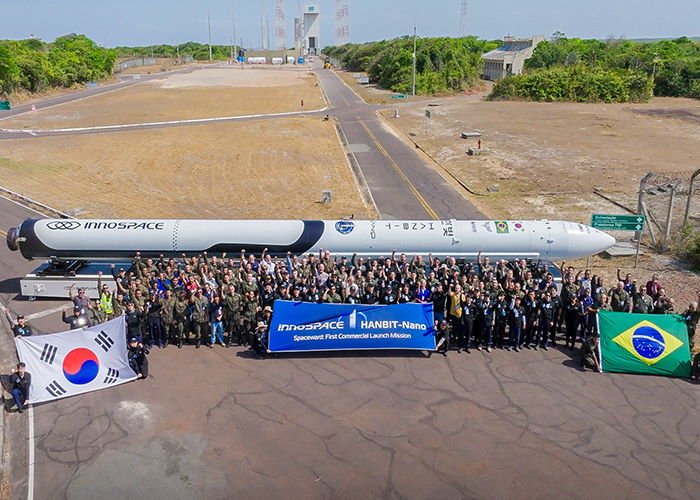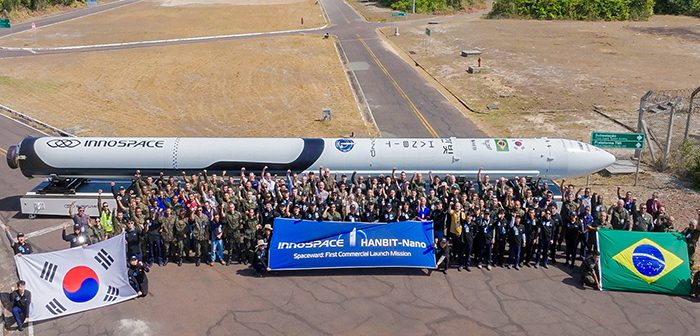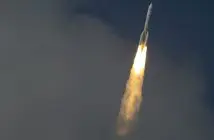
South Korean launch service provider INNOSPACE has announced that it is targeting 3:00 p.m. on November 22 (Brazil time) for the launch of its first commercial rocket, HANBIT-Nano, under the mission name SPACEWARD. The launch will take place from the Alcântara Launch Center in Brazil, marking a milestone in Korea’s growing presence in the global commercial space industry.
The decision follows an on-site safety inspection by the Korea Aerospace Administration (KASA) and the Brazilian Air Force (FAB), which verified launch readiness and operational safety. The final launch date was selected within a broader launch window extending from October 28 to November 28, after reviews of weather patterns, vehicle integration, and system performance. Final go-ahead will depend on ongoing meteorological assessments by the Brazilian Air Force leading up to launch day.
The SPACEWARD mission aims to deploy customer satellites into low Earth orbit (LEO) at an altitude of 300 kilometres and an inclination of 40 degrees. In addition to five small satellites, the mission will carry three experimental payloads and a symbolic branding model, testing both commercial and developmental technologies.
HANBIT-Nano is a two-stage launch vehicle standing 21.8 metres tall with a 1.4-metre diameter. It features a 25-ton hybrid rocket engine in the first stage and a 3-ton liquid methane engine in the second stage. The rocket’s hybrid propulsion system is designed to combine safety, efficiency, and flexibility for small satellite missions.
“The SPACEWARD mission marks a pivotal step for INNOSPACE as we enter the commercialization phase of our independently developed launch vehicle technology,” said Soojong Kim, Founder and CEO of INNOSPACE. “Our team is making every effort to complete all remaining preparations with precision, ensuring a safe and successful launch that demonstrates our competitiveness in the global space launch market.”
Earlier this month, a delegation from the Korea Aerospace Administration visited the Alcântara facility in coordination with the Brazilian Air Force to inspect launch operations, safety systems, and overall mission readiness. Their joint verification confirmed that INNOSPACE met the required operational and safety standards to proceed with final preparations.
The mission’s name, SPACEWARD, reflects the company’s vision of “Let’s Space Forward,” representing INNOSPACE’s first step toward orbit with a domestically developed two-stage rocket. If successful, the flight will mark a significant milestone in South Korea’s efforts to build a competitive private-sector launch capability and expand collaboration with international partners in space exploration and satellite deployment.
[Photo] INNOSPACE team members together with officials from the Brazilian Air Force and the Brazilian Space Agency pose with the company’s first commercial launch vehicle HANBIT-Nano at the Alcântara Space Center in Brazil.





